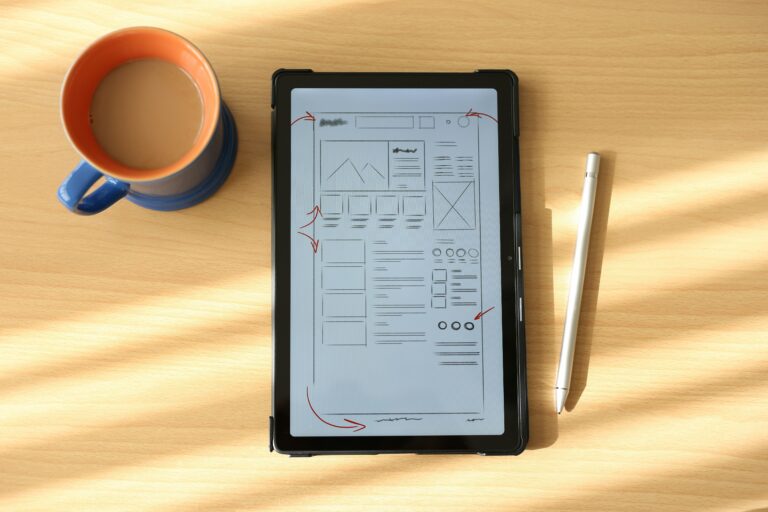Marketing Consultant
01 Apr, 2025
Product Manager roles London, Manchester, Oxford and Cambridge
We’re often asked about the best product management interview questions to use when interviewing product managers, but to answer this there are some questions you should first ask yourself.
This guide will help you use the right questions to hire the right product managers for you whether you are looking on a permanent, interim or fractional basis across the product management, product design and UX, marketing and eCommerce sectors.
Watch our Scaling Product Management teams roundtable
How to prepare for a Product Manager interview (as a Hiring Manager)
Before you begin interviewing candidates, preparation is key to ensuring a smooth, objective, and productive hiring process. Here are a few steps to help hiring managers get the most out of each interview:
- Define the role clearly – Understand whether you’re hiring a generalist or a specialist, and identify the stage of the product lifecycle the person will be involved in.
- Build a structured interview framework – Outline the competencies, experience, and behaviours you’re seeking. Use a scorecard to maintain consistency across all interviews.
- Align with stakeholders – Ensure alignment between HR, product leadership, and any cross-functional partners involved in the hiring process.
- Decide on interview stages – Plan how many rounds are needed, who will be involved in each, and which questions or assessments will be used at each stage.
- Promote your employer brand – Be ready to present your organisation in a way that appeals to top talent and reflects your company culture and values.
Top mistakes Hiring Managers make when interviewing Product Managers
Even experienced hiring managers can make errors that lead to poor hiring decisions or missed opportunities with great candidates. Here are some common pitfalls to avoid:
Lack of clarity on the role: Interviewing without a clear understanding of the goals, scope, and impact expected from the role can lead to confusion and mismatches.
Focusing only on technical skills: While domain expertise is important, overlooking soft skills like communication, influence, and adaptability can cause team friction later.
Overemphasis on past titles: Prior job titles don’t always reflect actual responsibilities or capabilities. Dig deeper into what the candidate actually delivered.
Ignoring culture and team fit: A technically brilliant candidate who doesn’t align with your values or team dynamic can negatively affect performance and morale.
Inconsistent interviews: Different interviewers asking vastly different questions makes it difficult to compare candidates fairly or gather the right insights.
Not selling the opportunity: In a competitive hiring market, failing to engage and excite the candidate about the role, team, and mission can mean losing top talent.
What type of Product Manager do I need to hire?
Before interviewing product managers, you must first be clear about the impact you need them to make. What do you need them to do?
The full product lifecycle is broad, and the stakes can be high, sometimes involving huge investment decisions that can pivot your entire business in a new direction.
From product innovation and ideation, product market fit, competitor analysis, market sizing, business case development, product development, product launch, managing a product in-life, product optimisation and prioritising the roadmap, there can be a lot involved:
- You may be starting with a blank sheet or paper, have an MVP or a huge complex product that has been live for years.
- You may be a super agile, fast moving environment or a complex global matrix environment with legacy technology and slow decision making (or something in between).
- You may require specific domain knowledge like consumer Fintech, eCommerce checkout, B2B data products, AI & machine learning, mobile apps or health market experience.
- Do you have a very technical product, or do you need someone more commercially focussed, or both?
- Do you need someone who has been through a scale-up journey or who’s launched a high value product in a large complex environment?
- What softer skills like stakeholder management, influencing style, ability to articulate a business case, building a team, people management and coaching, do you require?
- You must answer these questions and be clear about the experience, attributes and the impact needed from your target hire before you can start searching for your next Product Management hire.
Product Management interview questions to assess skills
If you have thought about the section above, you should have a list of skills, experience and attributes that you need from the person you’re trying to hire. In addition to this, your organisation may have specific values or leadership principles that are relevant to the role and need to be assessed.
Creating a skills/competency list (or matrix) to score product managers is essential as it will help you to ask the right product management interview questions to assess the correct skills, make unbiased judgements and use data to support your hiring decisions. You should also consider using a behavioural-based interview questioning technique such as STAR (situation, task, action, result).
The role of employer brand
It’s crucial to have a clear idea of the type of person you’re looking for, but remember that candidates will also be sizing you up. Keep in mind that you’ll often be competing for the best candidates, who will likely have other options on the table and will be weighing them carefully.
It’s therefore critical that your hiring strategy and ‘employer brand’ are well defined. You also need a process of not just evaluating candidates, but of uncovering and understanding where they are in their careers and what is important to them in a career move.
How we engage candidates in an opportunity is something we always work to understand with every single search we take on.
This is a huge subject that we won’t cover now, but we can give advice when required. Find out more about our Product Management Recruitment here.
75 Product Management interview questions: what should I ask?
We now come to the best product management interview questions to use when product managers or product leaders. This isn’t a comprehensive list but should offer some guidance and inspiration when interviewing.
Strategic thinking and vision
- How do you develop a long-term vision for a product?
- Can you outline your approach to aligning product goals with overarching business objectives?
- Describe a successful product launch strategy you’ve implemented.
- How do you prioritise features on a product roadmap to align with strategic objectives?
- What metrics do you use to measure the success of a product?
- Discuss your methodology for staying informed about market trends to inform product strategy.
- How do you assess competitors and differentiate our product in the market?
Leadership and collaboration
- How do you foster collaboration among cross-functional teams such as engineering, design, and marketing?
- Describe a challenging scenario where you had to mediate conflicting priorities among stakeholders.
- How do you motivate and inspire your product team?
- Share an example of a difficult decision you made regarding the product roadmap and how you communicated it to your team.
- What methods do you employ for user research and gathering customer feedback?
Product development process
- How do you create and maintain an effective product roadmap?
- Describe your approach to managing dependencies and prioritising tasks on the roadmap.
- How do you handle changes in requirements or scope during the development process?
- Can you discuss a successful Agile project you led? What were the key factors contributing to its success?
- What is your experience with Agile development methodologies?
- How do you ensure product-market fit before launching a new product or feature?
- Can you discuss a time when user feedback significantly influenced a product decision?
- What strategies do you employ to acquire new users and retain existing ones?
Technical knowledge and innovation
- How do you stay updated on emerging technologies relevant to our product?
- Can you discuss any experience you have with APIs or integrating third-party services into a product?
- How do you ensure our product is scalable to accommodate growing user bases?
- Describe your approach to monetisation strategy for our product.
- What methods do you use for user research and gathering customer feedback?
- Can you give an example of how you used A/B testing to optimise a product feature?
Problem solving and decision-making
- Describe a challenging technical problem you encountered in a previous role and how you resolved it.
- How do you approach decision-making in ambiguous or high-pressure situations?
- Share an example of a time when you successfully navigated a product through a crisis or unexpected setback.
- How do you handle conflicts within your product team or with other departments?
- Can you discuss a time when you had to make a quick decision with incomplete information?
Stakeholder management and communication
- How do you align product strategy with the vision and goals of executive leadership?
- Describe your approach to communicating product performance and strategy to investors and board members.
- How do you ensure alignment between product development and marketing/sales initiatives?
- Describe a successful partnership or collaboration that benefited your product.
- How do you communicate product strategy and updates to executives and other stakeholders?
- Can you discuss a time when you successfully influenced senior leadership to adopt a new product strategy?
- How do you handle stakeholder feedback and incorporate it into the product development process?
Industry and market knowledge
- What do you see as the biggest challenges facing our industry in the next 5 years?
- How do regulatory changes impact your product strategy, and how do you adapt to them?
- How do you assess competitors and differentiate our product in the market?
- Can you discuss a recent industry trend that has influenced your product strategy?
- How do you ensure that your product is inclusive and accessible to diverse user groups?
Product leadership and innovation
- How do you foster a culture of innovation within your product team?
- Where do you see our product evolving in the next 3-5 years?
- How do you balance short-term goals with long-term vision when developing a product roadmap?
- What strategies do you employ to identify opportunities for market expansion or new customer segments?
- How do you prioritise user experience and design in product development?
Analytics and metrics
- Which metrics do you track to measure product performance?
- How do you use data analytics to inform product decisions?
- Can you give examples of how user feedback influenced product design decisions?
- How do you measure and optimise user retention rates?
- How do you track and analyse user behaviour to identify areas for product improvement?
Ethical and regulatory considerations
- How do you ensure that your product meets security and compliance standards?
- Can you discuss any experience you have with handling data privacy regulations (e.g., GDPR, CCPA)?
- How do you ensure that your product is ethically developed and used?
- What steps do you take to address potential biases in product design and development?
Communication and presentation skills
- Can you discuss a successful pitch or presentation you made to secure funding or support for a product initiative?
- How do you tailor your communication style when presenting product updates to different stakeholders?
- Can you provide examples of how you effectively communicate complex technical concepts to non-technical stakeholders?
- How do you handle difficult questions or pushback during presentations or meetings?
- Can you discuss a time when you successfully advocated for a product feature or initiative during a presentation or meeting?
Personal and professional development
- How do you stay updated on industry trends and best practices in product management?
- Can you discuss any formal training or certifications you’ve pursued to enhance your product management skills?
- How do you seek feedback and opportunities for improvement in your role as a product manager?
- Can you provide examples of how you’ve mentored or coached junior members of your product team?
- How do you balance the demands of your role as a product manager with your personal and professional life?
Cultural fit and team dynamics
- Describe your leadership style and how it contributes to the success of your product team.
- How do you approach building and maintaining a positive and inclusive team culture?
- Can you discuss a time when you had to address performance issues within your product team?
- How do you ensure that your team feels supported and valued in their roles?
- Can you provide examples of how you’ve celebrated team successes and milestones?
Scenario-based questions
- If you were tasked with launching a new product in a highly competitive market, how would you approach it?
- Imagine our product faced a critical security vulnerability. How would you respond and ensure our users’ trust is maintained?
- Suppose a key feature on the product roadmap encountered unforeseen technical challenges. How would you adjust the roadmap and communicate this to stakeholders?
Summary
Having specialised in product management recruitment since 2003, Intelligent People has been at the forefront of product hiring as the discipline has grown and evolved. Today, we help a broad range of companies, from global blue chips to the most exciting scale-ups, hire product experts and build high performing product teams.
If you need to hire a product expert, a product leader or build a product team, get in touch here.
Further reading:




